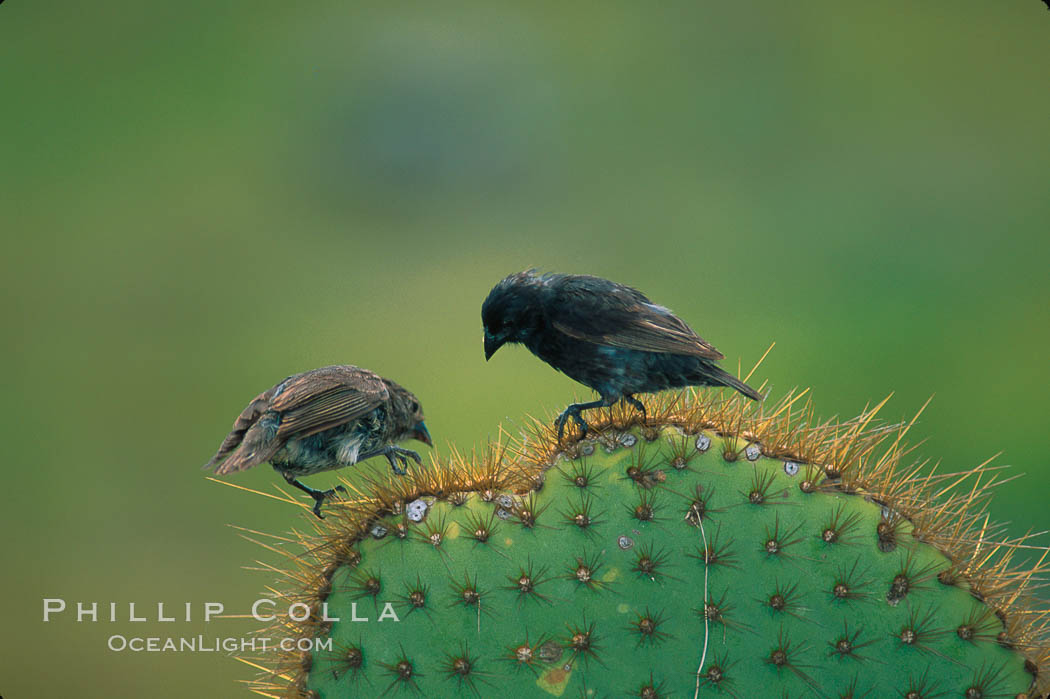Science
Related: About this forumGalapagos finches caught in act of becoming new species
This is the first example of speciation that scientists have been able to observe directly in the field.
Researchers followed the entire population of finches on a tiny Galapagos island called Daphne Major, for many years, and so they were able to watch the speciation in progress.
The research was published in the journal Science.
The group of finch species to which the Big Bird population belongs are collectively known as Darwin's finches and helped Charles Darwin to uncover the process of evolution by natural selection.
In 1981, the researchers noticed the arrival of a male of a non-native species, the large cactus finch.
Professors Rosemary and Peter Grant noticed that this male proceeded to mate with a female of one of the local species, a medium ground finch, producing fertile young.
Almost 40 years later, the progeny of that original mating are still being observed, and number around 30 individuals.
"It's an extreme case of something we're coming to realise more generally over the years. Evolution in general can happen very quickly," said Prof Roger Butlin, a speciation expert who wasn't involved in the study.
Read the article at:
http://www.bbc.com/news/science-environment-42103058?ocid=socialflow_twitter
Nitram
(22,803 posts)The article clearly explains why the new population is considered a distinct species.
longship
(40,416 posts)Their story, and that of the Galapagos finches that they've studied for decades, was told in the mid-90's.
The Beak of the Finch
A highly recommended read. It's an astounding story.
![]()
Judi Lynn
(160,542 posts)Galapagos must be a wonderland. Hope Ecuador will always protect the area.

Galapagos finches, Darwins finches. Darwin Island, Galapagos Islands, Ecuador
gvstn
(2,805 posts)This is a new article but it is along the same lines. Birds in certain areas really do self select for specific traits when mating. The original article I read had the amount of change in only a few generations being remarkable. I found it interesting that it could happen so fast.